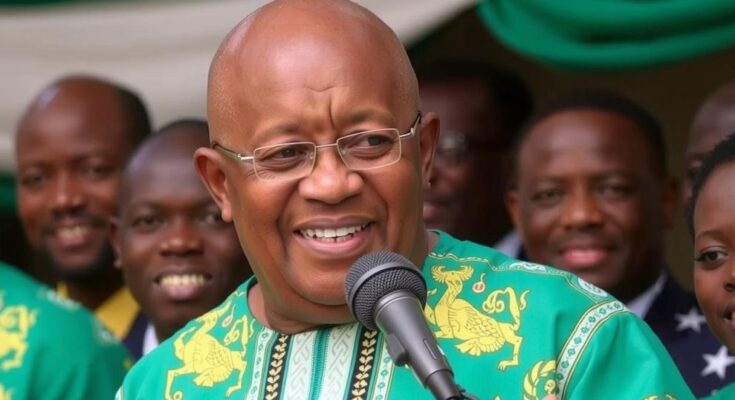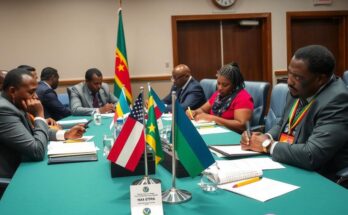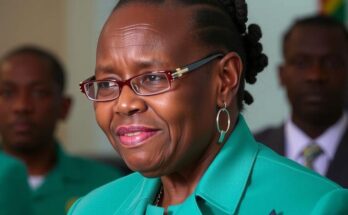John Mahama has made a historic comeback as Ghana’s president, becoming the first leader to regain the presidency three decades after being ousted. His election victory comes amidst economic turmoil and promises to address these challenges, including corruption and job creation for the youth. Mahama previously served from 2012 to 2017 and aims to “reset” the nation’s economy and renegotiate IMF agreements.
In a significant political comeback, John Mahama has reclaimed the presidency of Ghana, marking a historic achievement as the first leader to return to power after being ousted in the past three decades of multi-party democracy. With victories in the recent election, Mahama tapped into the electorate’s discontent regarding economic issues that have intensified following Ghana’s debt default and subsequent $3 billion agreement with the International Monetary Fund.
Mahama, who led the country from 2012 to 2017, was able to defeat Vice President Mahamudu Bawumia of the ruling New Patriotic Party. His campaign promises included revamping the economy, addressing corruption, and establishing new initiatives to create employment opportunities for the youth. Notably, Mahama aims to “reset” Ghana’s trajectory while renegotiating aspects of the IMF deal.
The former president also brings with him a wealth of experience from his philanthropic and legislative roles, including his contributions in handling regional crises such as the Ebola outbreak as leader of the Economic Community of West African States. Mahama’s tenure was previously marred by a notorious energy crisis and allegations of corruption, yet his campaign emphasized a dedication to reform and transparency.
Mahama has also expressed his support for a controversial anti-LGBTQ bill which has drawn significant international scrutiny, demonstrating his intention to maintain certain conservative policies. Amidst this political landscape, optimism from his supporters suggests a strong desire for transformative change in governance.
As Mahama assumes the presidency again, he must navigate the challenges that brought him to defeat in the past, while addressing the pressing economic concerns that propelled his return to power. His leadership will be watched closely, as he attempts to fulfill the commitments made to the Ghanaian people during his campaign for a renewed vision of progress and accountability.
Overall, Mahama’s election reignites discussions about Ghana’s economic strategies, governance practices, and the future of its multi-party political system.
John Mahama, a seasoned politician and former president of Ghana, has made a remarkable return to power after being voted out in 2016. His recent victory in the presidential election highlights the shifting political dynamics in Ghana, driven largely by public frustration over economic management and recent financial crises, including a national debt default. The backdrop of his campaign also includes his experience in public service, international diplomacy, and a controversial past marred by crises during his initial presidency, all of which contextualize his current policies and promises.
In conclusion, John Mahama’s historic return to the presidency of Ghana reflects the electorate’s desire for change amidst economic challenges. His commitment to addressing corruption, creating a favorable economic environment, and restoring public trust position him as a potential catalyst for transformation. However, Mahama must navigate the deep-seated issues that contributed to his previous term’s difficulties while fulfilling the expectations of a populace yearning for progress.
Original Source: www.wfxg.com




